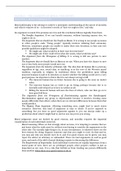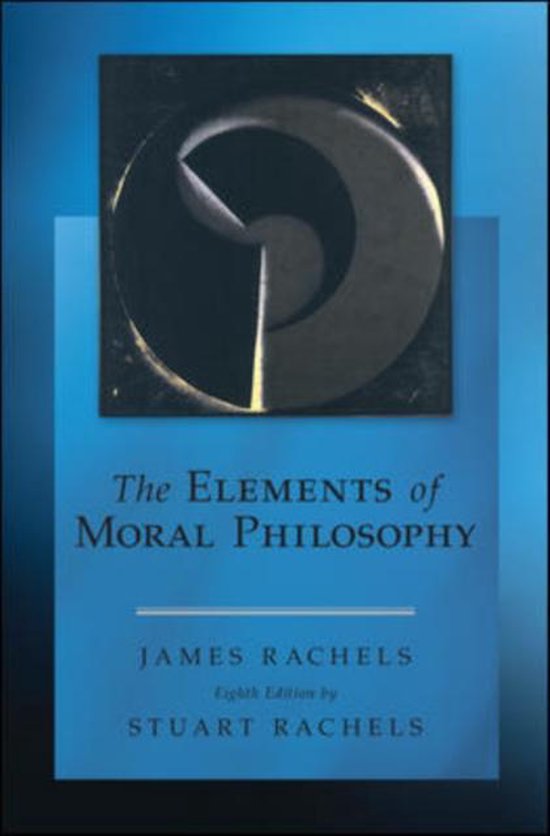RACHELS – THE ELEMENTS OF MORAL PHILOSOPHY
CHAPTER 1: WHAT IS MORALITY?
Moral philosophy is the attempt to achieve a systematic understanding of the nature of morality
and what it requires of us – in Socrates’s words, of “how we ought to live,” and why.
An argument is sound if its premises are true and the conclusion follows logically from them.
- The Benefits Argument. If we can benefit someone, without harming anyone else, we
ought to do so.
- The Argument that we should not Use People as Means. It is wrong to use people as means
to other people’s ends. “Using people” typically involves violating their autonomy.
However, sometimes people are unable to make their own decisions, in that case two
possible guidelines might be adopted:
We might ask ‘what would be in their own best interests?’
We might ask ‘if she could tell us what she wants, what would she say?’
- The Argument from the Wrongness of Killing. It is wrong to kill one person to save
another.
- The Argument that we should Save as Many as we can. When you have the chance to save
one or lose both, most people would save one.
- The Argument from the Sanctity of Human Life. The idea that all human life is precious,
regardless of age, race, social class, or handicap, is at the core of the Western moral
tradition, especially in religion. In traditional ethics, the prohibition upon killing
innocent humans is said to be absolute, no matter whether the killing would serve a very
good purpose. An objection to this is that it is not always wrong to kill:
The innocent human has no future because she is going to die soon no matter
what.
The innocent human has no wish to go on living, perhaps because she is so
mentally undeveloped as to have no wishes at all.
Killing the innocent human will save the lives of others, who can then go on to
have good full lives.
- The Argument from the Wrongness of Discriminating against the Handicapped.
Discrimination against any group is objectionable because it involves treating some
people differently than others, when there are no relevant differences between them that
would justify it.
- The Slippery Slope Argument. Allowing something once, might lead to much worse
scenarios. However, this kind of argument is easy to abuse. If you’re opposed to
something, but you have no good arguments against it, you can always make up a
prediction about what it might lead to, and no one can prove you wrong.
Moral judgments must me backed by good reasons, and morality requires the impartial
consideration of each individual’s interests.
- Moral reasoning. When we feel strongly about an issue, it is tempting to assume that we
just know what the truth must be, without even having to consider the arguments on the
other side. The morally right thing to do, in any circumstance, is whatever there are the
best reasons for doing. Suppose someone says that you ought to (not) do thus-and-so;
you may ask why you should (not) do it, and if no good reason can be given, you may
reject the advice as arbitrary or unfounded. There are bad arguments as well as good
ones, and much of the skill of moral thinking consists in discerning the difference.
- The Requirement of Impartiality. Each individual’s interests are equally important; from a
moral point of view, there are no privileged people, other people’s welfare is just as
important as our own. It is a rule that forbids us from treating one person differently
from another when there is no good reason to do so.





